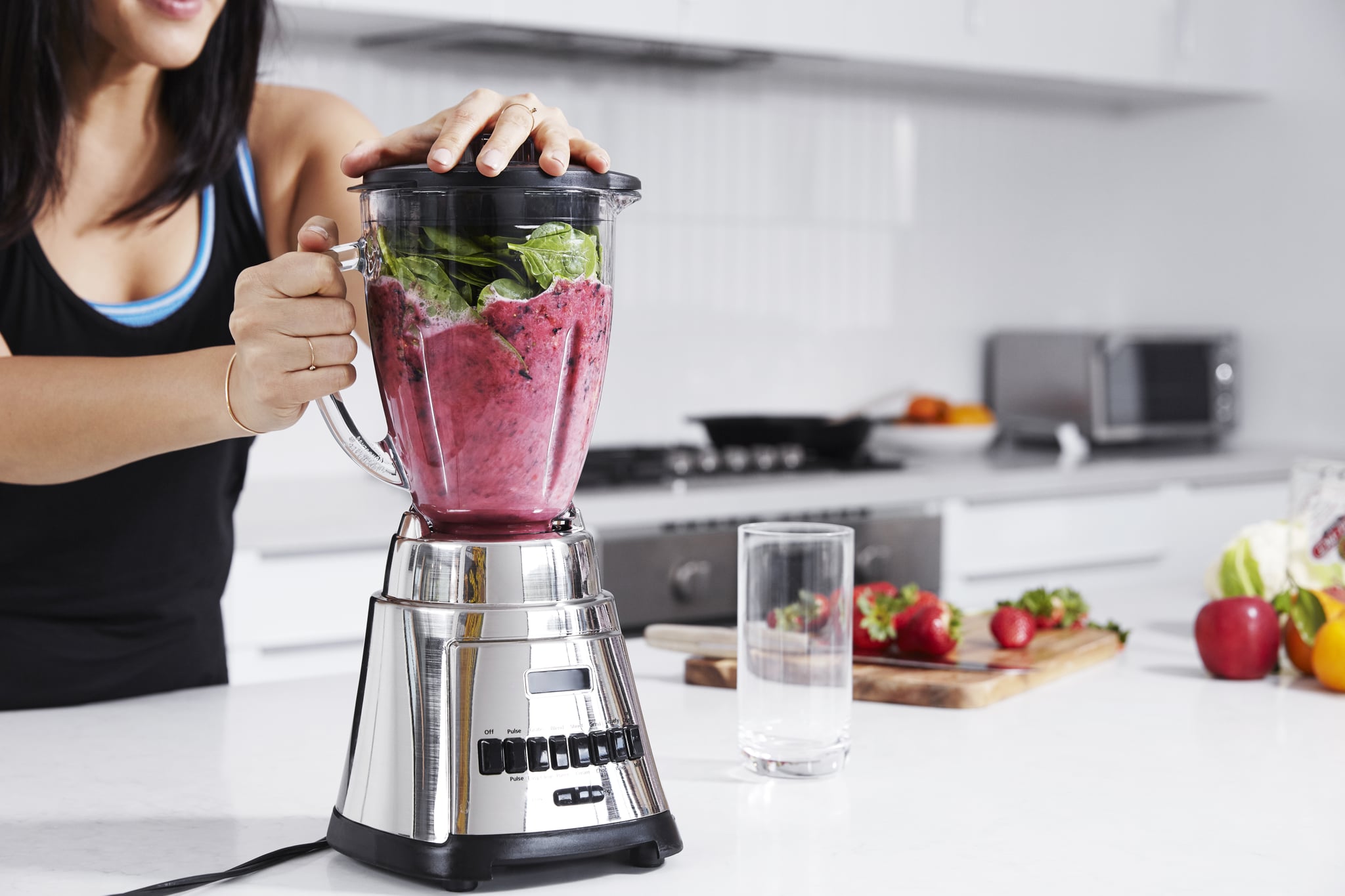
There are a lot of choices for protein powder [1] out there. If you've looked into your options at all, you know whey protein is one of the most common. Whey is the liquid part of milk that separates when cheese is made [2]. And just like you may be tempted to toss out the creamy liquid sitting atop a container of Greek yoghurt, cheesemakers once discarded whey [3], too — until they realised it was a nutritional powerhouse. Now, once whey liquid is separated, it's processed to extract the proteins and turn them into powder form.
However, when you go to buy whey protein powder, you'll find that it's actually sold in two different varieties — whey protein isolate and whey protein concentrate — and the difference between the two is more significant than you might think. Here's a look at how whey protein powder is made and which type might be the best choice for your workout.
What's the Difference Between Whey Protein Concentrate and Whey Protein Isolate?
The difference between isolate and concentrate is in their processing. Once whey liquid has a sufficient protein concentration of 80 percent [4], it's dried to make whey protein concentrate. Carbohydrates and fats make up the remaining 20 percent of the powder. Different steps are then taken to process whey protein isolate [5], which removes more of the carbohydrates and fat, resulting in a protein powder that's approximately 90 percent protein and little else [6].
According to Healthline, a 100-calorie serving of whey protein isolate provides 23 grams of protein, compared to 18 grams from whey protein concentrate. That's almost an additional egg's worth of protein [7]. Whey protein isolate also contains fewer carbs and fats — one gram and zero grams, respectively. While the differences in these two nutrients are small (whey protein concentrate contains only 3.5 grams of carbs and 1.5 grams of fat), they can still have an impact on your workout.
Which Whey Protein Powder Should You Choose?
Making the choice between whey protein concentrate and whey protein isolate depends on your physical activity, dietary needs, and budget. "Protein concentrate yields a product that is lower in nutritional value but is a more affordable product," Jessica Nelson [8], a registered dietitian nutritionist, told POPSUGAR.
Now, whey protein concentrate isn't bad for you by any means. It's still a great source of protein, and if you're doing higher-intensity workouts, your body actually needs those extra post-workout carbohydrates to replenish its glycogen stores [9]. On the flip side, the small amount of fat in whey protein concentrate can slow digestion and delay your body from getting those nutrients as quickly. Thankfully, you have a two-hour window to refuel after a workout [10]. And if you're just choosing whey protein concentrate as a healthy snack, the extra carbs and fat will help with satiety and flavour, making it a solid, flexible, and budget-friendly choice for most athletes.
However, if you're looking for a pure source of protein without additional fat or calories, whey protein isolate is the way to go. "Isolate means the protein comes from a whole food source and is filtered to remove trace contaminants or other components, giving you a very pure form of protein," Nelson said. It often costs more because you're paying for more protein and more processing time.
If it fits in your budget and extra carbs and fat don't fit with your health goals, whey protein isolate might be the best choice for you. It also has less lactose, so if you're lactose sensitive, isolate is probably worth the extra cash. Whichever you choose, know that you're getting a complete protein with all 20 essential and nonessential amino acids [11] and great post-workout fuel.